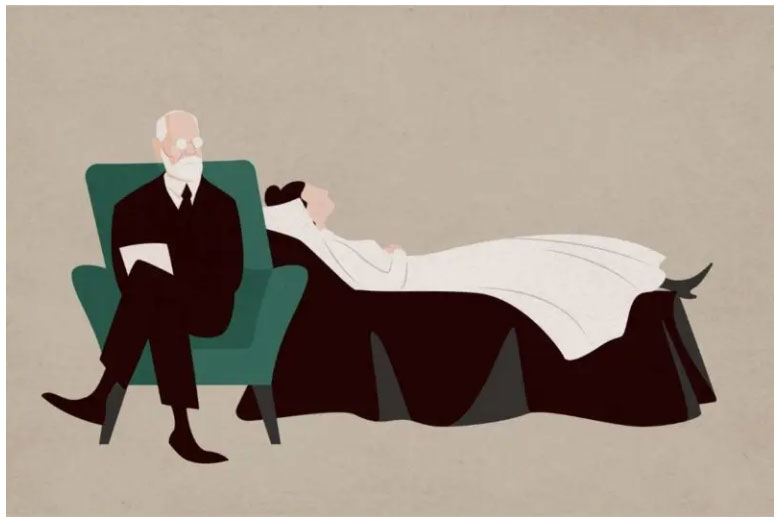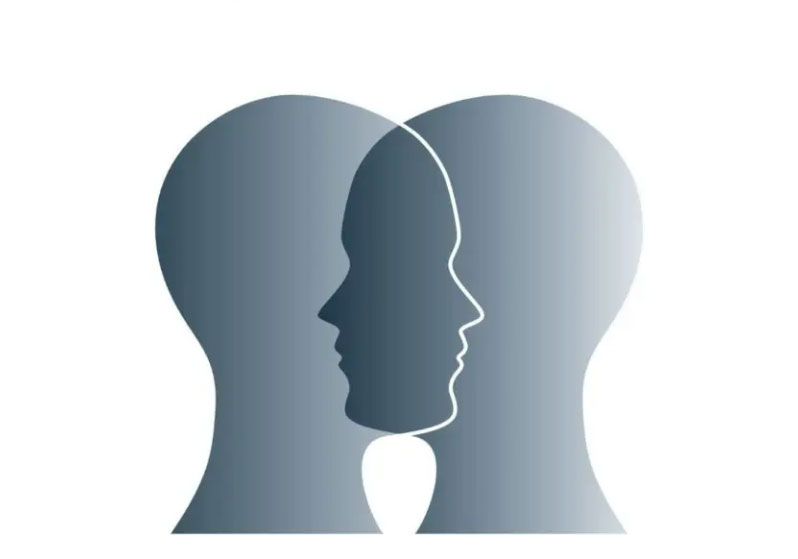What is the Spiritual ego
The human psyche is one of the greatest mysteries of life. The psyche encompasses everything that it means to be human. It comes from the 17th century Greek word psukhē, which translates as "breath, life, soul". It is obvious that several approaches are needed to address such a vast subject.
In psychology and in the theories from the West, the ego plays a crucial role in the psyche. It forms our self-image and is an essential part of human cognitive function. Conversely, on the spiritual path, the ego can be an obstacle to awakening. If left to itself, it can become a monster that must be tamed and transcended.
Ego and psychotherapy
The word ego comes from the Latin of the beginning of the 19th century, translating directly as "I". The ego is synonymous with Sigmund Freud's theory of the human psyche. Freud was a renowned neurologist who founded the discipline of psychoanalysis in the early 1890s, with the aim of understanding the functioning of man's self-image, the self. In addition to explaining our motivations and behaviour, psychoanalysis was used to help treat mental health disorders.
Freud's theories about the mind permeated popular culture for good reason; the belief that our thoughts, emotions and motivations were fed by a rich inner world is still valid today. This inner universe theorized by Freud in a branch of psychoanalysis known as ego psychology divides the human psyche into three distinct levels of consciousness; the id, the ego, and the superego.

Identity, ego and superego
According to Freud, the subconscious "It" is the most deeply rooted aspect of the human psyche. It is our animal instinct. This chaotic aspect of the mind is stored deep in the subconscious mind and seeks instant gratification by following pleasure and avoiding pain. Freud rightly invented the "pleasure principle".
The ego is an unconscious aspect of the mind that acts as a buffer between the overzealous quest of the self for pleasure and the reality of the outside world. Freud wisely invented the "principle of reality". Although he always seeks to satisfy the "It", the ego does so in a much more rational and logical way. In this context, the ego is positive.
The third and final aspect, the superego, is governed by social conditioning. Molded around the age of 3 to 5, the superego is driven by societal and parental values, and often aims for perfection. This conscious aspect of the mind is further divided into consciousness (feelings of guilt) and the ideal self (I "should" be like this or like that).
Signs of the spiritual ego
Initially, the ego as a false self is the one who is happy to engage in the spiritual journey. It believes that it can become more perfect as it gains more and more spiritual wisdom. Its superficial purpose is to improve self-esteem and accumulate spiritual knowledge. However, he never dares to ask himself which "self" needs esteem and knowledge.
The spiritual ego is the most armored of all egos. In their journey back to wholeness, many experience this phase where the ego takes on yet another layer of inflation, "identity". But this time it is legitimate because it bears a spiritual label. This phase of the ego is still the ego, but it is now becoming largely impenetrable. Some features of this phase are as follows:
• Excessive identification with intellectual knowledge
• Defending this knowledge
• Spiritual vanity and pride
• Spiritual superiority (seeing others as less than oneself)
• Absence of real emotional vulnerability and transparency
• Lack of honesty
• Lack of self-awareness, lack of self-observation
• Lack of genuine curiosity
• Teaching more than listening and learning
• Lack of gratitude to others
• Lack of responsibility
• Wearing a mask of positivity (arising from fear)
• Engaging in spiritual debates (arising from the need to be right)
Each of these expressions is simply a defense against awakening. As such, they represent the many and varied delaying tactics of the ego.

Do not give in to the ego
How dedicated are we to undoing our blockages? Devotion to dismantling our resistances and defenses must be paramount in our practice. To what extent are we aware of ourselves? Are we observing our selves as we speak? Do we ask ourselves "who" is speaking? Is it the ego or the Spirit? Are we engaged at the level of heart or intellect? And as we listen to others, are we quick to formulate a response based on our intellectual knowledge? Do we ask ourselves with radical honesty: "What is the purpose of this communication? Is it to join with the heart in true humility, or do we join with the ego to prove ourselves right?
Whether we think of ourselves as a spiritual student or teacher, we must be attentive to this moment of ego temptation. Do we want to wake up from suffering? Do we really want to? Then we must also desire to see what has been denied and then projected onto others, the body, the world, the past and God. Most of us are so afraid to expose our deepest fears, toxic patterns, values and beliefs. But it is impossible to free ourselves from these illusions if we are not prepared to look at them helplessly. Only then will we deeply know that our security really lies in our lack of defense. Only then will we know that we are the embodiment of incorruptible innocence and therefore indestructible.
Instead of fear, justification and defense, we must cultivate a healthy curiosity and sense of humor around our problems and blockages. It is necessary to have the desire to look inside ourselves.
The spiritual ego of a novice
For someone who has just begun to practice spirituality. It is easy to fall into the trap of the spiritual ego by assuming that he has only found the right path by consuming a certain content or doing a few practices for a few months. It is the person who is just beginning to read spiritual books, practice meditation, attend retreats or group practices, watch spiritual videos, or participate in online courses. This is the time when you feel the urge to convince others of your path and to change them so that they can see the world as you see it.

It is essential to understand that no path is right or wrong. What you think is the right path is only good for you. It may not be right for someone else. Each person is unique, and everyone has a different path in life. It is essential that each person listen to his or her own inner voice or intuition, and decide for him or herself what path to take. This is the most spiritual thing to do. Even if they choose not to practice spirituality for the rest of their lives, it is perfectly normal!
No one has given us the responsibility to change someone else. Someone who really wants to change would come to you by his or her will and ask for your help. Even then, your job is simply to share your experience with them, not to force them to follow your path, but rather to empower them to pursue their own inner voice.
Conclusion
You can start by asking yourself questions. You can also ask trusted friends, family members, or spiritual mentors to help you identify areas where you might fall into a spiritual delusion. Keeping a diary is another way to appeal to the spiritual ego.
Spirituality is beautiful, and it has brought beauty into the lives of many people, but it is essential to be careful not to be trapped by the spiritual ego. Mahatma Gandhi said beautifully that "When the ego dies, the soul awakens.


